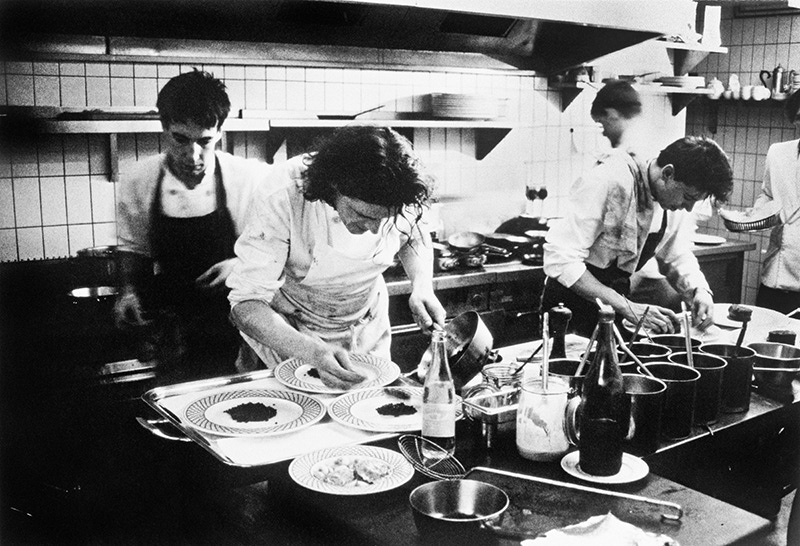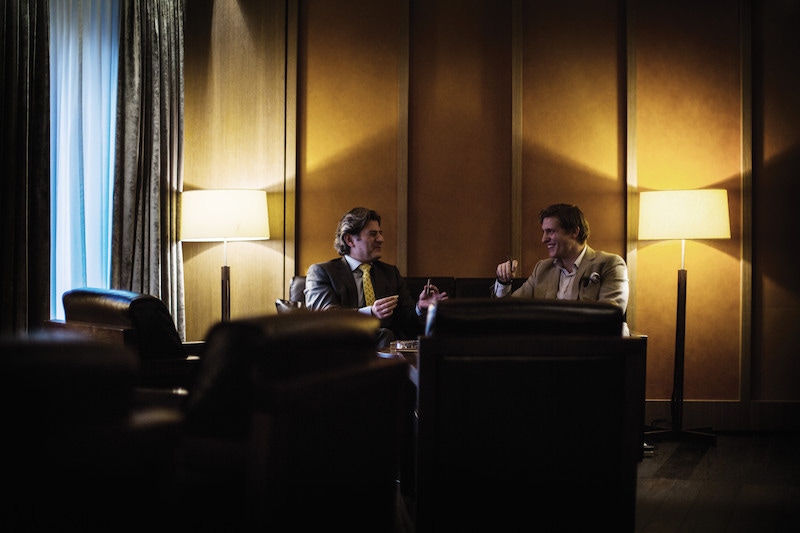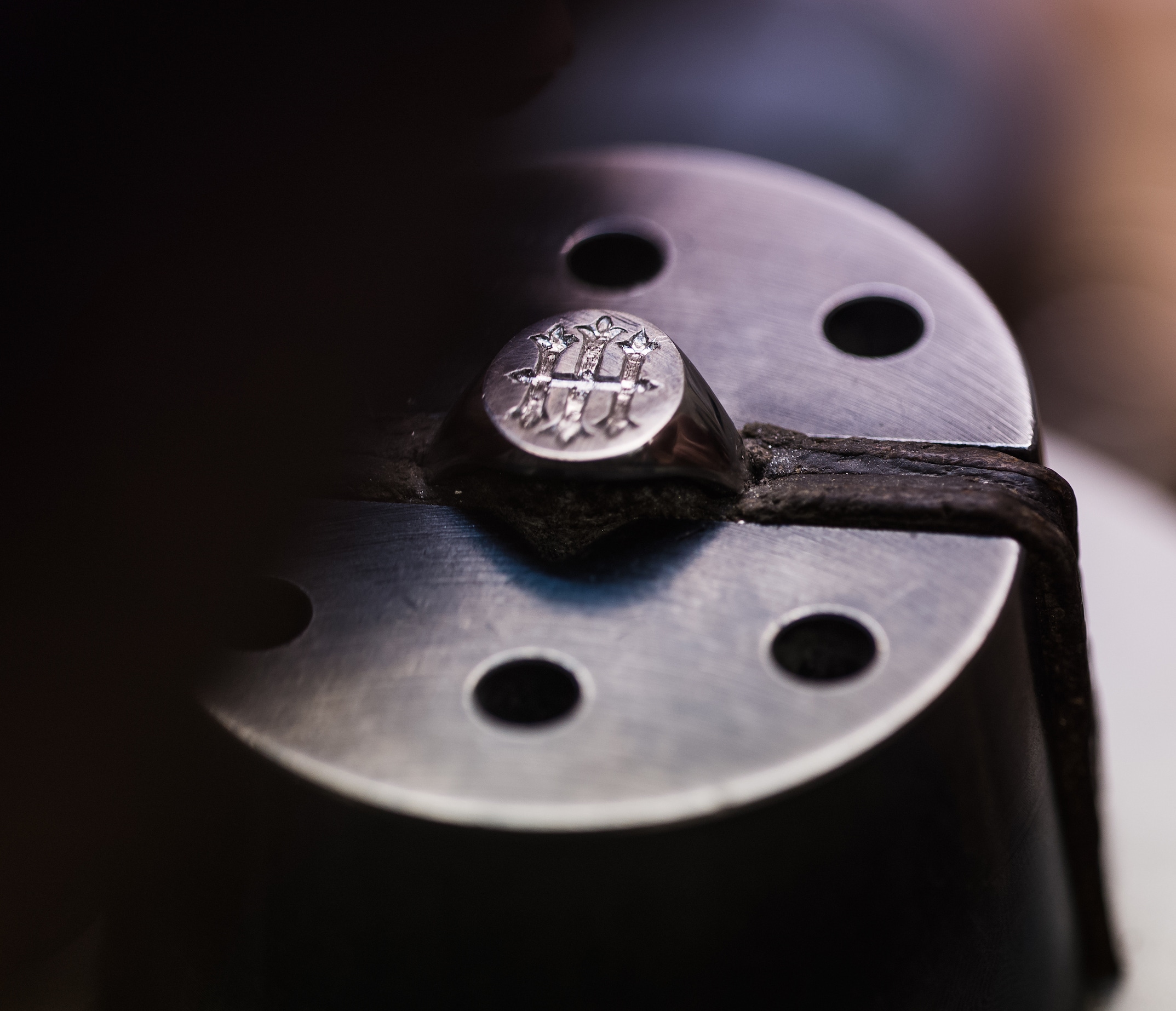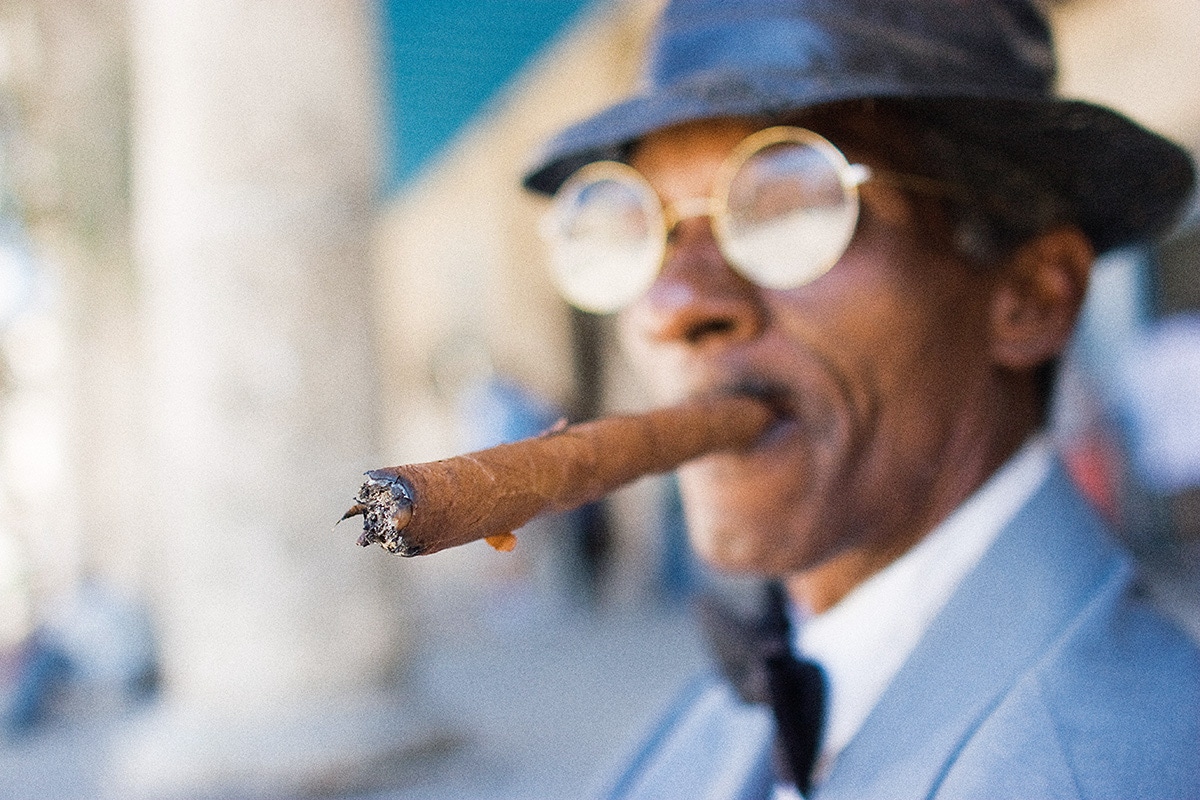WHITE HOT
This year marks the 25th anniversary of White Heat, the landmark cookbook that immortalised the young Marco Pierre White as the original enfant terrible of modern British gastronomy.

To get away with the mercurial genius routine, one actually has to be a genius.
Take the enfant terrible of modern British gastronomy. Frankly, had this paradigm of irascible behaviour not been blessed with the God- given talents destined to shape the course and change the perception of British food in the 1980s, as a young man he could just as easily have lived off his brooding good looks one way or another. Hooded of brow, chiselled of cheekbone, and obdurate of jaw, this wild-eyed youth crowned by a mop of irrepressible curls, of fag-in-scowling-thin-lipped countenance, possessed all the high testosterone markers on the masculine facial dimorphism checklist that women find so irresistible. And irresistible they did find this Adonis in the kitchen; legend has it that in flagrante delicto was an off-menu inter-course special at his restaurant Harveys, indulged in by a particularly pulchritudinous customer.
Before there was Gordon Ramsay, before there was Anthony Bourdain, Marco Pierre White - who makes those two TV-lionised personalities look like pussycats - was the biggest badass of them all. Incredible anecdotes abound about this choleric prodigy's propensity to let his temperament hold sway. Like the time he called a certain Labour Party former prime minister the indelicate four-letter C-word. Or his longstanding feuds with everyone from his protégé, Ramsay, to his mentor, Albert Roux. Or his infamous intolerance of what he deemed inexcusable customer behaviour: those who asked for salt and pepper deserved ejection; he who asked for chips on the side was personally attended to by the chef with hand-cut frites to the tune of 25 quid; and obnoxious, raucous City boys - bearing in mind these were the good old freewheeling, Thatcherite eighties days of Pétrus slugging and fat expense accounts - unceremoniously bounced to the curb en masse. Or his calmly incensed response to a young chef whinging about the heat in the kitchen: splicing open the back of said poor sod's jacket and trousers with a razor-sharp paring knife and insisting he finished the shift thus ventilated. Or how his brutal behind-the-scenes regime at Harveys - flying knives, ear-popping pressure, routine humiliation and unprintable language were par for the course - reduced a young Ramsay (then working for White) to tears. 'I can't remember what it was about, but I yelled at him and he lost it,' White said. 'The next thing I know he was sobbing in the corner, holding his head in his hands, with tears rolling down his cheeks. He was saying things like, 'I don't care what you do to me. Hit me. I don't care.''
Notoriety may have trailed in Marco Pierre White's wake like nutmeggy wafts in Nigella Lawson's, but given that he has virtuosity in spades, all tales are often breathlessly recounted as part of the Marco myth. Even Roux conceded, as recently as 2014, that 'the only one of my students I'm not in contact with is Marco Pierre White. We fell out, which is sad because he was the most gifted person I ever trained.'
The trajectory of White's career is as unlikely as it is compelling. Or, rather, it is compelling because it is unlikely, a veritable Dickensian tale of one gifted individual's meteoric rise. Born on December 11, 1961 to English chef Frank White and Italian immigrant Maria Rosa Gallina, the third of four sons raised in a Leeds council estate, he witnessed his mother's death from a brain haemorrhage at age six. Without qualifications, White left Allerton High School in Leeds and, pushed by his father to enter the family catering vocation, began to train as a chef starting in the kitchens of Hotel St. George in Harrogate, North Yorkshire, and the Box Tree in Ilkley, West Yorkshire. The plucky 16-year-old then packed all his worldly possessions - '£7.36, a box of books and a bag of clothes' - into a proverbial bundle on a stick and headed for the bright lights of the big city. In London, he began his classical French cuisine training as a commis with Albert and Michel Roux at Le Gavroche. He went on to learn under the tutelage of Pierre Koffmann at La Tante Claire, Raymond Blanc at Le Manoir aux Quat'Saisons, and Nico Ladenis at Chez Nico. At 24, in 1987, White opened Harveys in Wandsworth Common as head chef and joint owner. The darling of the British food press garnered his first Michelin star almost immediately. Rhapsodic reviews, such as the uncharacteristic one by Drew Smith (then editor of the typically acerbic Good Food Guide) pronouncing Harveys as 'a meteor hurtling through the restaurant firmament powered by the extraordinary passion of one young man', were practically a dime a dozen. It came as no surprise to pundits that, by 1990, White had become the youngest chef ever to have earned two Michelin stars.
The menu at Harveys comprised primarily of French cuisine with a generous sprinkling of highly refined and personal takes on Italian pasta classics. The most beloved signature dishes are still exalted by anyone who has tasted them: tagliatelle with oysters and caviar, pig's trotter with morels, in homage to Pierre Koffmann, ravioli of lobster with soy beurre blanc, hot mango tart, biscuit glacé with nougat ice cream ... the list is long and rich.
In a bid to earn the elusive final star, White left Harveys, selling his share to his restaurateur partner, Nigel Platts- Martin, to become chef-patron of The Restaurant Marco Pierre White at the former Hyde Park Hotel (today the Mandarin Oriental Hyde Park), then the Oak Room at Le Méridien hotel on Piccadilly. At the ripe old age of 33, he earned his third Michelin star, becoming the first British chef to be awarded three (the aforementioned Roux brothers and Koffmann - the three chefs who had previously won three stars while cooking in the United Kingdom - were all French). At the time, White was one of the youngest ever chefs to have been bestowed the ultimate gastronomic accolade.
Over the span of this exhilarating journey, White impacted the careers of many industry luminaries, among them Ramsay, Philip Howard, Stephen Terry, Éric Chavot, Bryn Williams, Matt Tebbutt, James Stocks, Heston Blumenthal, Donovan Cooke, Robert Reid, and Thierry Busset. As for front-of-house, there's Max Palmer, Claude Douart, Philippe Messy, and Chris Jones.

'A lot of people say I look like a rock star or a designer punk,' White has said. 'But I swear it's the job that has carved my face. It's the hours, the stress, and the pressure. It's not me trying to look like this.' In 1999, after 17 years of toil and stress, at the height of his success, White made the shocking announcement of his early retirement from the kitchen, and handed back his three stars. 'I was being judged by people who had less knowledge than me, so what was it truly worth?' he said. 'I gave Michelin inspectors too much respect, and I belittled myself. I had three options: I could be a prisoner of my world and continue to work six days a week; I could live a lie and charge high prices and not be behind the stove; or I could give my stars back, spend time with my children, and re-invent myself.' In an interview with Rachel Cooke published by The Guardian in January this year, White said of this period of his life: 'You question things that are given to you. You don't feel good enough. I became semi depressed. I lost my way. I came from the old world, the tail end of Escoffier's world. I remember Mr. Brown, the inspector of Michelin. The day I won my three stars, he said, 'Marco, never forget what made you great'. What he was saying was, 'Stay behind your stove'. I respected that. The day I no longer wanted to be behind my stove, I put my hands up and said, 'I'm out of here'. It's all or nothing with me. I could not live a lie.'
Despite the importance White places on family, his marital life has been tumultuous, to say the least. In 1988 he married Alex McArthur, with whom he has a daughter, Letitia. After two years, they called it quits. In 1992, after a three-week-long courtship, the 30-year-old White proposed to the 21-year- old model Lisa Butcher, whom he had met at Tramp, the Jermyn Street nightclub. The wedding, at Brompton Oratory in Knightsbridge, was sold to Hello! magazine in a £20,000 deal brokered by the bride herself, who wore a backless Bruce Oldfield number with cutaway sides, of which White has said that was the moment he realised the marriage was doomed - he told a reporter she looked dressed to walk down the catwalk rather than the aisle. The marriage lasted all of 15 weeks before coming to an acrimonious end. White has recently said that he was so intoxicated by her looks that he forgot to think about her personality. In 1992 he started seeing Matilde 'Mati' Conejero, the bartender at The Canteen. White got married for the third time in 2000 to Conejero, with whom he has three children: Luciano, 20, Marco Jr, 19, and Mirabelle, 13. Their on-off relationship has not been smooth sailing, with the tempestuous Conejero variously accusing White in dramatic, public, and widely documented fashion of affairs with financier Robin Saunders, singer/actress Martine McCutcheon, and several of his waitresses. Conejero and White are currently estranged, and he has recently started a relationship with Silent Witness actress Emilia Fox.
This year marks the 25th anniversary of White Heat, the monumentally influential cookbook written by White in his prime. Looking at the commemorative edition of the book, released this year, one can't help but marvel at the timelessness of the black-and-white images captured on PolaPan 35mm at Harveys. The late Irish photographer Bob Carlos Clarke immortalised the young Marco Pierre White as a rebel with a cause in all his savage, raw and unvarnished beauty. The new edition includes some hitherto unpublished photographs, as well as tributes provided by mentors and admirers alike, including Bourdain, Mario Batali, Blanc, Tom Kerridge, Jason Atherton, and even Ramsay. Some of the images are so cinematic it is hardly a stretch to imagine how the film might look; White has sold the rights to White Slave, the autobiography, and it is said that Michael Fassbender has first refusal to play him.
The original release of the book marked a watershed moment in fine-dining cookbook publishing, for it was one of the first to shed light on the grit and grind behind the glamour. Previously a genre dominated by the glossy hegemony of exquisitely produced, micro-managed, coffee-table tomes as stunning as they were contrived, White Heat blew it wide apart. Bourdain writes a foreword any and every acolyte can appreciate: 'I don't know if I can adequately convey to you the impact that White Heat had on me, on the chefs and cooks around me, on subsequent generations. Suddenly, there was life pre-Marco, and post-Marco. This book ... changed everything ... Ten years before my book Kitchen Confidential supposedly 'ripped the lid off' the grim realities of the restaurant business, White Heat brimmed with casual admissions of what we all knew as chefs: that it was a hard, brutal, repetitive business ... With White Heat, Marco Pierre White gave us all a voice, gave us hope, a new template for survival ... This book gave us power. It all started here.'
White Heat 25 is out now at all good book stores.
Family is very important to White. One of the most refreshingly candid revelations in his warts-and-all autobiography, White Slave, is the enormity of the effect on him of his mother's early demise. His relationship with his father and three brothers was not a close one, and he spent most of his childhood on his own. This defining moment of his life 'has affected everything I have ever done. It's the reason I used to go off on my own and play in the woods as a child, and it's the reason I still like to go off in the woods as an adult.' White has a home in Wiltshire and spends his leisure time freshwater fishing and deer stalking. 'I know I have craved recognition as a result of losing my mother, and I know I have done some really stupid things because I did not have that stability as a child,' he said. 'It has been very painful looking at it in such detail, but it had to be done.'
Since retirement from the kitchen, White has become a prolific restaurateur, with a portfolio that includes London Steakhouse Co., and ownership of the chain brand names Wheeler's and Frankie's ('Marco Pierre White - Steakhouse Bar & Grill' and 'Marco's New York Italian by Marco Pierre White' are franchised brands operated by third parties with outlets in hotels throughout the U.K.), as well as a TV personality (including co-hosting MasterChef Australia: The Professionals 2013). He is also the dining consultant to the cruise line P&O Cruises. More controversially, he has become a brand ambassador for Knorr, a move he has defended against criticism by saying that 'working with companies like Knorr, it allows me to stand onto a bigger stage and enrich people's lives ... Michelin stars, they're my past.'



